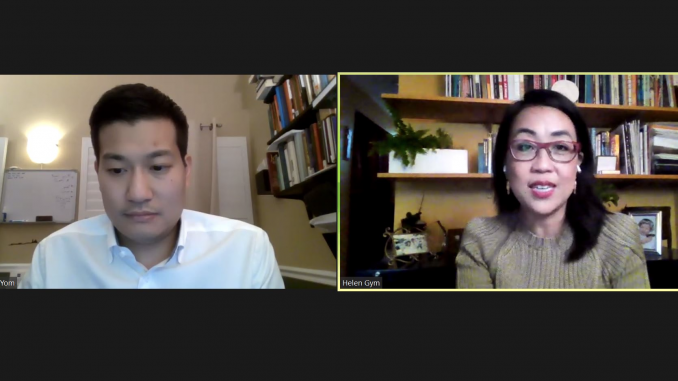
Approximately 40 percent of Asian Americans believe anti-Asian racism has increased during the COVID-19 pandemic, according to a July report from the Pew Research Center.
“We are getting really harrowing accounts of what was being experienced,” said Russell Jeung, a speaker at the event. “I think young people are experiencing it at a much higher rate, especially online.”
Students, faculty, and speakers discussed anti-Asian discrimination prior to and during the COVID-19 pandemic at The Rise in Anti-Asian Sentiments: Racism, Xenophobia, and COVID-19, a webinar hosted on Zoom Monday by Temple University’s College of Liberal Arts.
The event, which around 120 people attended, kicked off a series of discussions the college is hosting surrounding the topic of race and the COVID-19 pandemic, said Sean Yom, a political science professor and its moderator.
“The current moment, as many of our speakers today will note, has unleashed a new wave of prejudice and discomfort against Asians and Asian Americans, not least because we have been told ad nauseam that this is all the work of a ‘China virus,’” Yom said.
Anti-Asian sentiment has been rising internationally during the pandemic, with incidents being reported from the United Kingdom to Sri Lanka, according to Human Rights Watch.
Jeung, a professor of Asian American studies at San Francisco State University and chair of Stop AAPI Hate, an anti-discrimination group for Asian American Pacific Islanders he co-founded in mid-March, said his team has received many reports from Asian Americans experiencing racial discrimination tied to the pandemic.
Speakers at Monday’s event read a selection of reports collected by Stop AAPI Hate, describing incidents of physical and verbal harassment and assault from states across the country.
Stop AAPI Hate received nearly 1,900 reports of harassment, shunning and physical assaults in an eight-week period from March to May, according to a June press release.
Use of the term “Wuhan Virus”” in reference to COVID-19, which has been amplified by prominent Republican elected officials and conservative media outlets, has coincided with an uptick in the perception of people of Asian descent as fundamentally less American, according to a September study by researchers within the University of California system.
That uptick marked the first time since 2007 that the perception of Asian Americans as being less American than European Americans has increased after a long trend in the opposite direction, according to the study.
A Chinese American woman in Philadelphia was punched and called a racial slur alongside her daughter in July, the Philadelphia Inquirer reported, and an Asian couple was allegedly assaulted at a SEPTA subway station in March, Philly Voice reported.
Erika Lee, a professor of American history at the University of Minnesota and the author of books like “America for Americans: A History of Xenophobia in the United States,” said nativist attitudes towards Asian immigrants have long cast them as vectors of disease.
“We know from the historical record that 19th century Americans routinely labeled San Francisco’s Chinatown as a plague spot, as a cesspool, a laboratory of infection,” Lee said. “It was literally thought of as something inseparable from being Chinese.”
Part of that stereotype was the depiction of Asians consuming diseased or unclean animals like snakes, dogs or rodents, like a video that circulated widely in the earlier days of the COVID-19 pandemic that showed a Chinese woman eating a bat from a bowl of soup, Lee said.
Some scientists had first theorized that COVID-19 originated in bats, but the actual origin of the virus is still unknown, according to the U.S. National Parks Service.
“The video struck upon and revived the centuries-old stereotypes connecting China and Chinese people to disease,” she added.
After being reposted by The Daily Mail and Russia Today, the video was ultimately revealed to have been filmed in Palau, Micronesia, for a travel vlog in 2016, the Guardian reported.
Philadelphia city councilwoman Helen Gym, who spent years working as an activist with community organizations in Philadelphia’s Chinatown neighborhood, spoke at the event about how Asian Americans could counter discrimination politically.
“The thing that I think we struggled the most with is being able to create a broad sense of solidarity,” Gym said. “When a group is marginalized and treated as an outsider, the answer to that is not to just, you know, be as loud as you can only, it’s to create a sense of a broader community.”


Be the first to comment